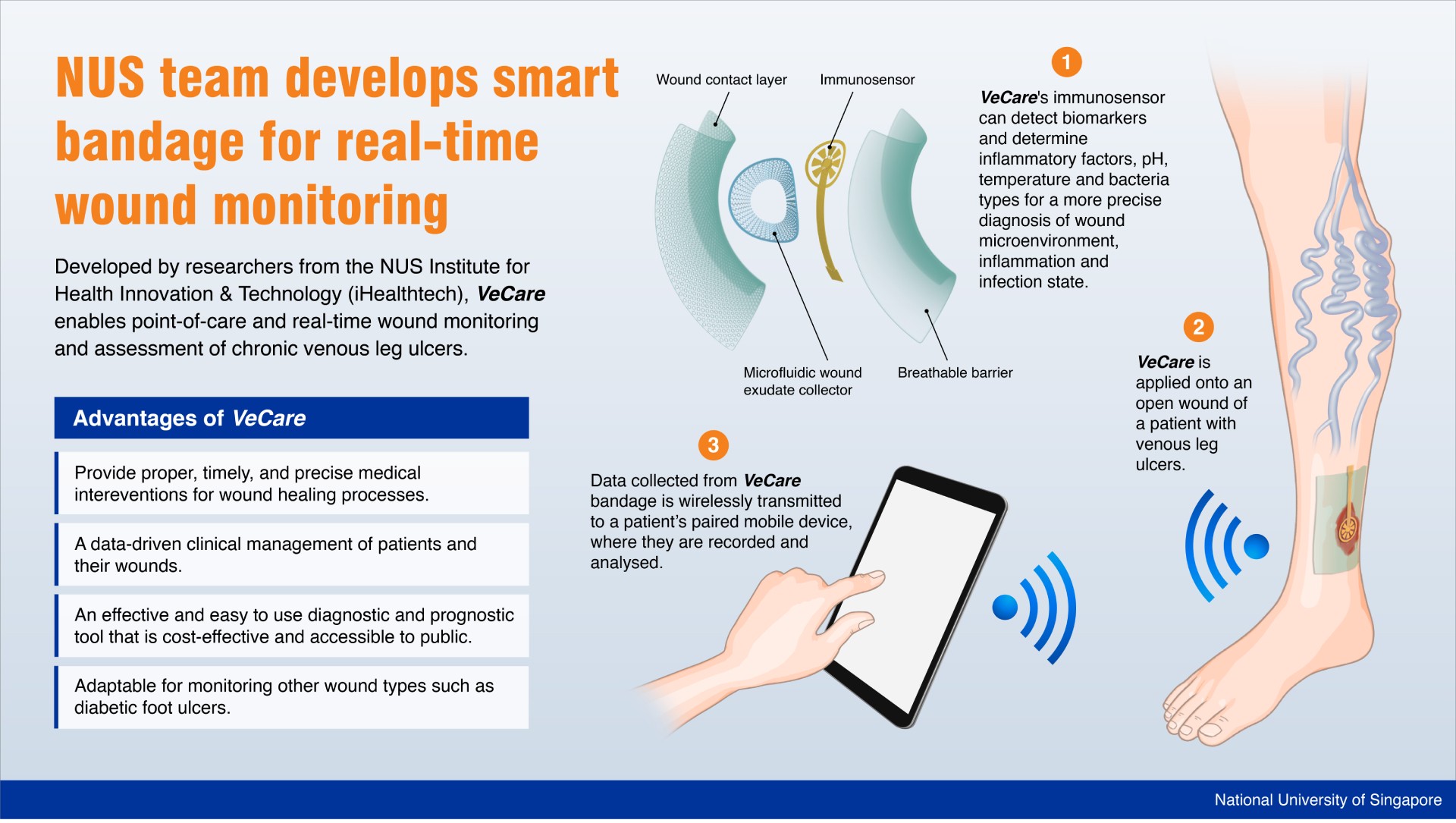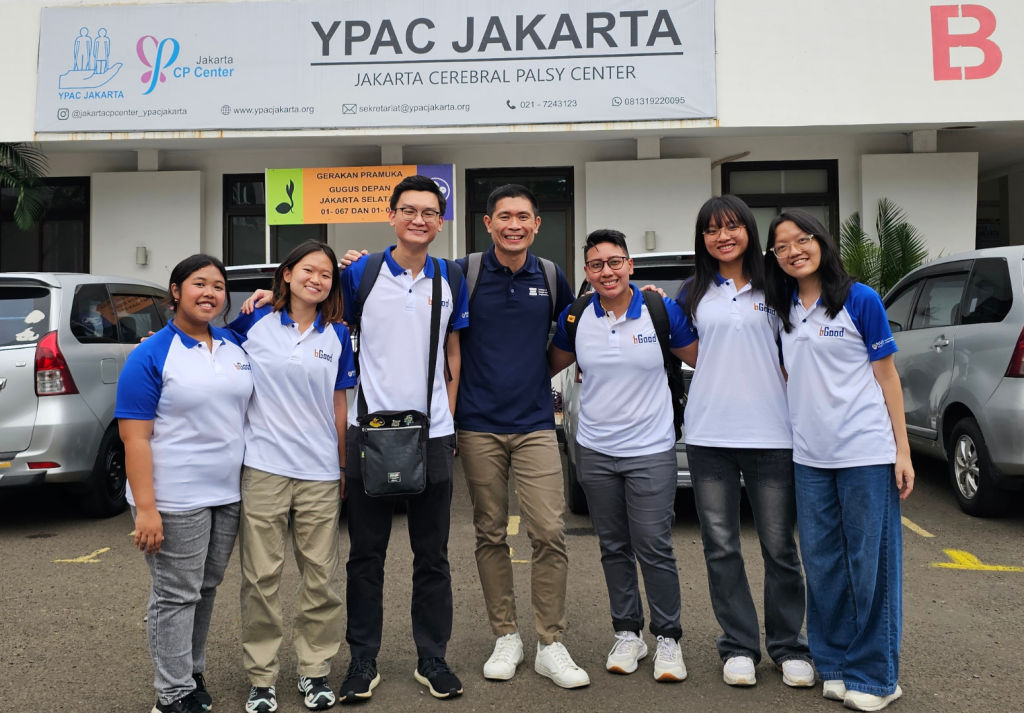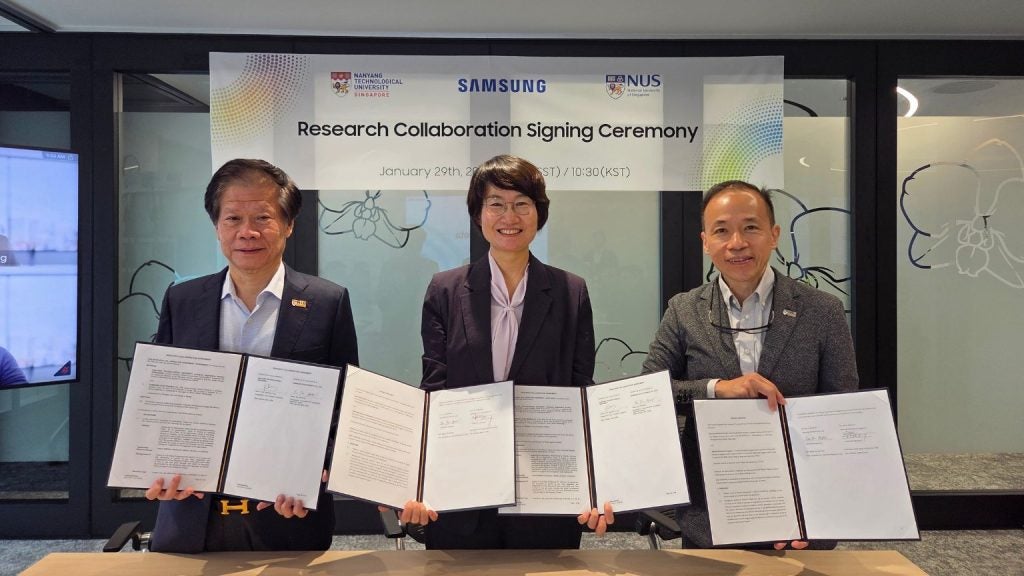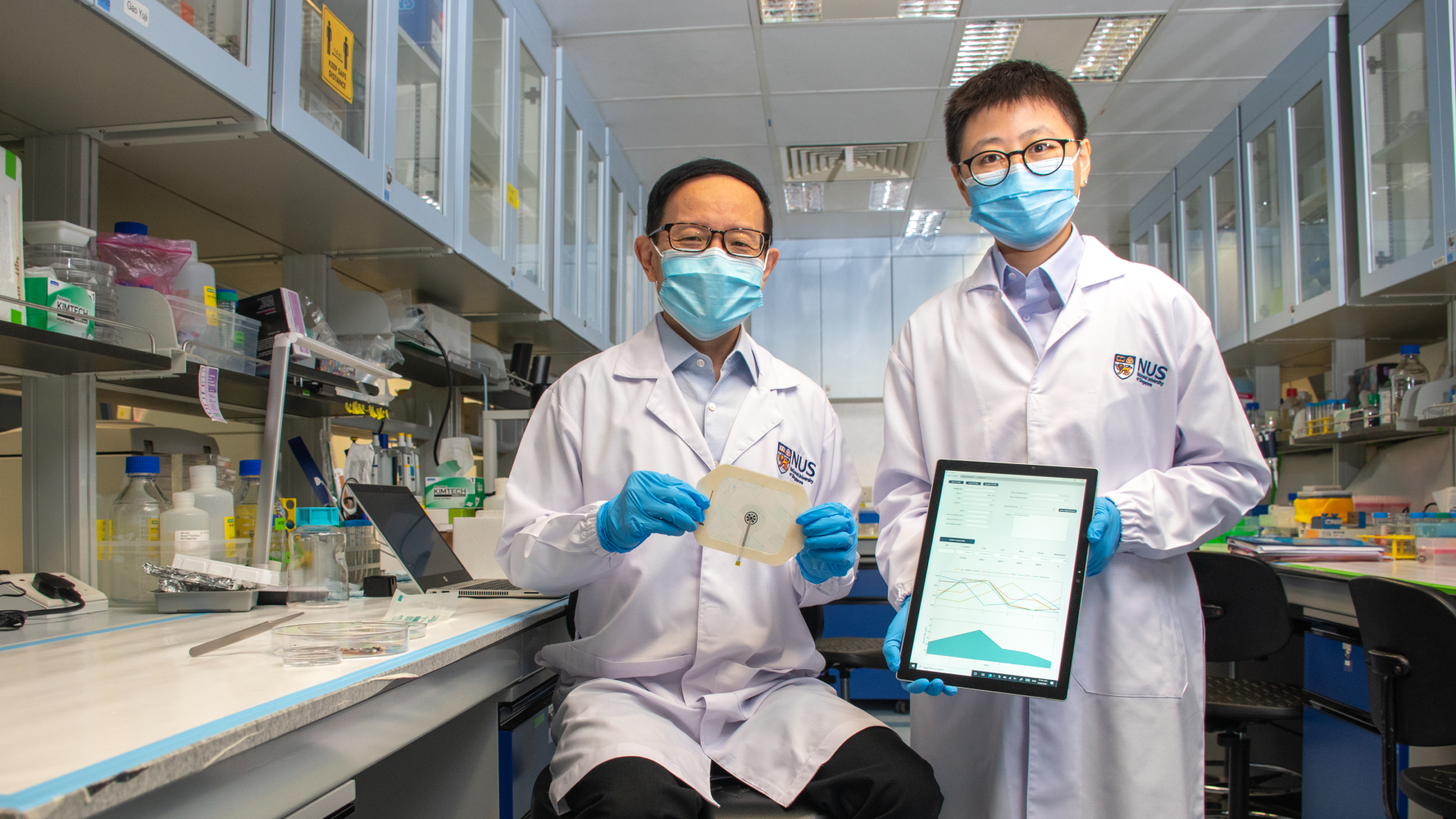
A groundbreaking smart wearable sensor that can wirelessly conduct real-time, point-of-care assessment of chronic wounds has been developed by a team of NUS researchers.
Named VeCare, the system built around an innovative wound sensing bandage and associated app was invented by a research team led by Professor Lim Chwee Teck of the NUS Department of Biomedical Engineering and Director of the Institute for Health Innovation & Technology (iHealthtech), in collaboration with clinical partners from Singapore General Hospital.
The novel sensor technology used in the device can detect temperature, pH, bacteria type and inflammatory factors specific to chronic wounds within 15 minutes, hence enabling fast and accurate wound assessment.
It has been estimated that about two per cent of the world's population suffer from chronic wounds. , Moreover, with many countries facing an ageing population, healthcare providers are seeing more patients suffering from non-healing wounds such as diabetic foot and chronic venous leg ulcers.
The healing processes for these chronic wounds are often interrupted due to reasons such as infection and repeated trauma, leading to severe stress, pain and discomfort to afflicted patients. For patients with diabetic foot ulcers, this can lead to more severe outcomes such as foot amputation.
Timely care and proper treatment of chronic wounds are needed to speed up recovery, but this requires multiple clinical visits for assessment and treatment, which adds to the healthcare cost. The NUS team's innovation can help mitigate these consequences and relieve patients with chronic wounds from unnecessary distress.
"Point-of-care devices coupled with telehealth or digital health capability can play a significant role in transforming the healthcare industry and our society, which is catalysed by the COVID-19 pandemic requirements for safe distancing," said Prof Lim.
"Our smart bandage technology is the first of its kind designed for chronic wound management to give patients the freedom to perform the test and monitor their wound conditions at home."
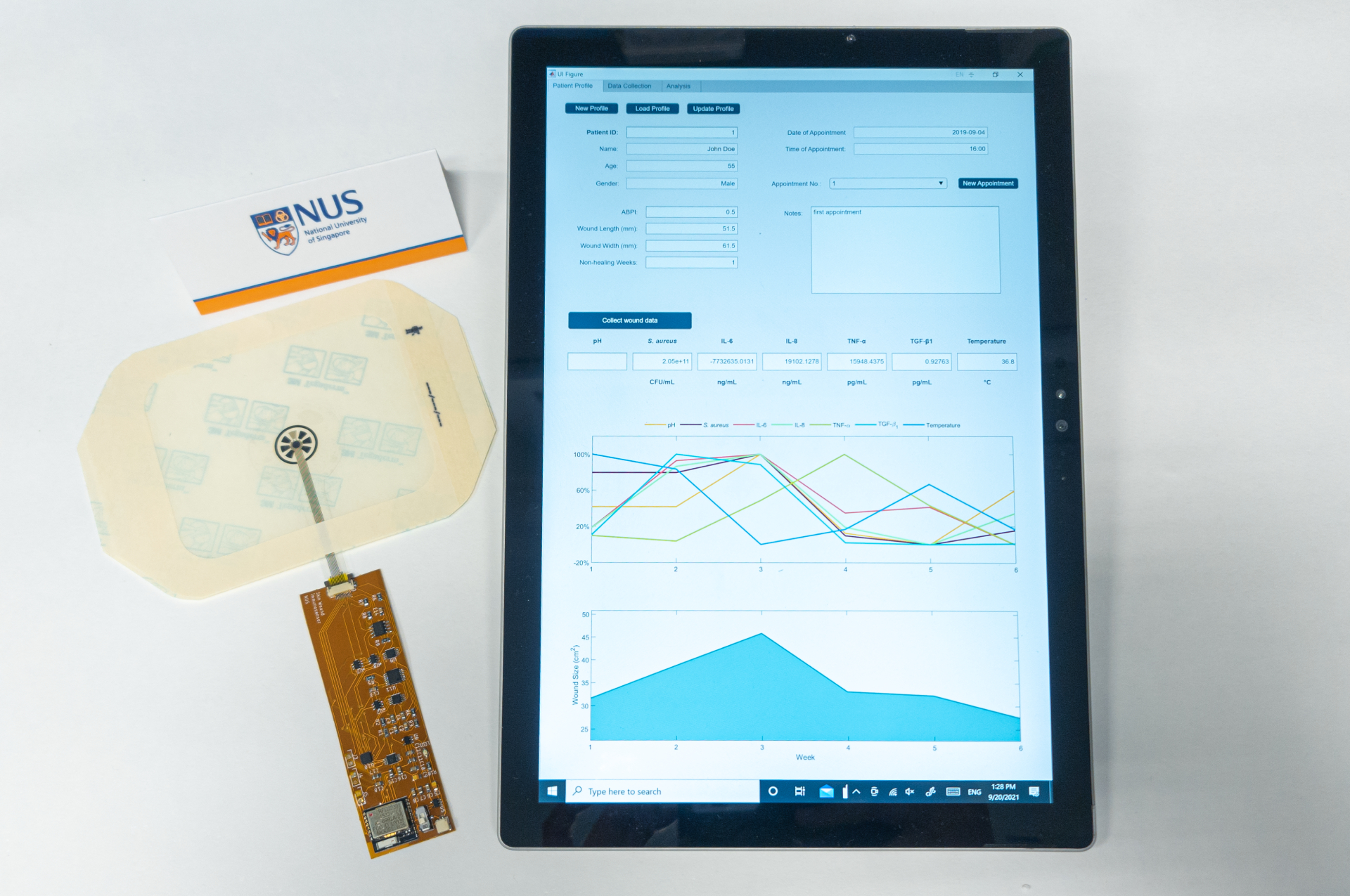
The research behind the VeCare platform was first published in the journal Science Advances on 21 May 2021.
Current clinical assessments of wounds rely on visual inspection, or sending samples of wound fluid to a centralised lab to detect and analyse specific biomarkers. The whole process usually takes about one to two days and may impede proper, timely and precise medical interventions.
Responding to these limitations, the VeCare platform consists of an innovative wound sensing bandage, an electronic chip and a mobile app. The bandage comprises a wound contact layer, a breathable outer barrier, a microfluidic wound fluid collector and a flexible immunosensor.
The platform is the first such device that can detect bacteria type and probe inflammatory factors, in addition to measuring acidity and temperature, within a single 15-minute test. The immunosensing bandage detects multiple chronic wound-specific biomarkers from wound fluid using an electrochemical system.
In addition, a chip integrated with flexible electronics is connected to the sensor to transmit data wirelessly to an app for convenient, real-time wound assessment and analysis onsite. The chip component, powered with a rechargeable battery, can be reused for subsequent applications.
The VeCare platform and mobile app enable doctors to monitor the condition of patients' chronic wounds remotely, reducing the hassle for patients to travel to a clinic. The bandage complements the patient's existing medical treatment while facilitating timely medical intervention for wound healing processes.
In collaboration with the Singapore General Hospital, a small clinical test of VeCare was conducted on patients with chronic venous leg ulcers. They successfully demonstrated that the platform is effective in the assessment of chronic wounds and enabling monitoring of the progress of wound healing with timely medical intervention.
Prof Lim said the next step for the research team is to further develop VeCare to meet safety, regulatory and mass production considerations.
"The VeCare platform is easily scalable and customisable to accommodate different panels of biomarkers to monitor various types of wounds. The aim is to have an effective and easy to use diagnostic and prognostic tool for precise and data-driven clinical management of patients," he said.
The team will explore the incorporation of other appropriate biomarkers suitable for other wound types and utilise data in existing clinical workflows to improve diagnosis and treatment. They hope to test the technology on a larger prospective randomised clinical trial with different types of non-healing chronic ulcers such as diabetic foot and pressure ulcers.
